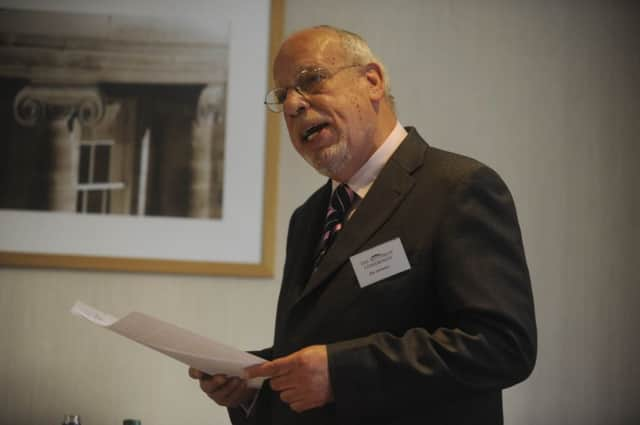Comment: Equity income one point of light


This superior performance is, after all, the basis on which investment management charges are levied. And that management charge outlay, so the argument runs, is soon more than made good by those superior investment returns.
That’s not quite what happened in 2014. According to the Citywire Investment Trust Insider, compiled by Gavin Lumsden and the incomparable Jennifer Hill – former personal finance editor of The Scotsman – actively managed trusts have struggled to beat the broader indices against which they measure their performance. The Citywire analysis shows that only seven of the 23 Global Growth trusts beat the MSCI World Index return of 9.2 per cent. UK funds did worse, with only three of 12 trusts in the UK All Companies sector outperforming the 2.5 per cent fall in the FTSE All Share.
Advertisement
Hide AdAdvertisement
Hide AdAnd the same baleful story is repeated in the UK Smaller Companies sector. Here no fewer than nine out of 12 trusts fell by more than the 5.9 per cent decline in the Numis Smaller Companies index.
However, there is one splash of consolation in this otherwise bleak picture: UK Equity Income trusts did better, with 14 of the 19 returning more than the FTSE 350 High Yield index, which fell by 3 per cent.
I am mightily relieved – though not altogether surprised – at this finding. Since this long market rally began in the depths of 2009 I have consistently favoured funds and trusts biased towards equity income.
However, even within the equity income sector there has been a wide variation in performance. Best of the bunch was Edinburgh Investment Trust, which rode out the departure of star manager Neil Woodford with a total return gain of 9.2 per cent, handsomely besting both the average total return in the sector of 1.3 per cent and the FTSE 350 High Yield, which fell 3 per cent. By contrast, Lowland Investment Trust struggled in 2014 with a total return decline of 11.5 per cent.
It’s true that income trusts seldom figure in the top ten best performers table – this is almost always dominated by highly specialist trusts and 2014 was no exception. Best performing trust was the Ottoman Fund specialising in East European property. For those who risked investment in this exotic sounding fund there was a handsome gain of almost 88 per cent. Three trusts specialising in India featured among the top six, ranging from JP Morgan India (up 43.4 per cent) to India Capital Growth (up 64.5 per cent).
Healthcare and biotech trusts also featured strongly in the top 15, including Worldwide Healthcare, up almost 30 per cent, and BB Biotech, up 53.5 per cent.
Among popular global trusts, long-term sector leader Scottish Mortgage had a more pedestrian year – though that seems a mean description for a trust that turned in a gain of almost 15 per cent. The best shareholder return from a global investment trust came from Caledonia Investments. It roared back after a lacklustre period and delivered just over 23 per cent to shareholders. Majedie Trust took second place with a 21.3 per cent return.
Mining trusts had a nightmare year. The highest-profile casualty was BlackRock World Mining where investors lost 36 per cent due to the downturn in metal markets and the furore caused by the collapse of London Mining, in which it had invested 7 per cent of the fund.
Advertisement
Hide AdAdvertisement
Hide AdBig losers among mainstream UK funds included Schroder UK Growth where investors lost almost 19 per cent, making it the worst performing fund in the UK All Companies sector. Harry Nimmo’s Standard Life UK Smaller Companies trust, so long a star turn, saw a 16.4 per cent share price fall. BlackRock Smaller Companies shed nearly 18 per cent. Dunedin Smaller Companies collected the wooden spoon in this sector with a fall of 19.4 per cent.
As for the giant Dundee-based Alliance Trust, Citywire describes its performance as “disappointing rather than disastrous”. The high discount to net assets of 13 per cent has let US activist investor Elliott Capital Management build a 5 per cent stake.
The presence of Elliott on the register is seen as increasing the pressure on chief executive Katherine Garrett-Cox and is probably linked to the exit in September of manager Ilario Di Bon. Looking ahead, Canaccord Genuity analyst Alan Brierley has a “buy” recommendation on the shares, believing Alliance “has now entered a critical phase”. Ah, yes. But will it be different from all the previous ones?
SUBSCRIBE TO THE SCOTSMAN’S BUSINESS BRIEFING